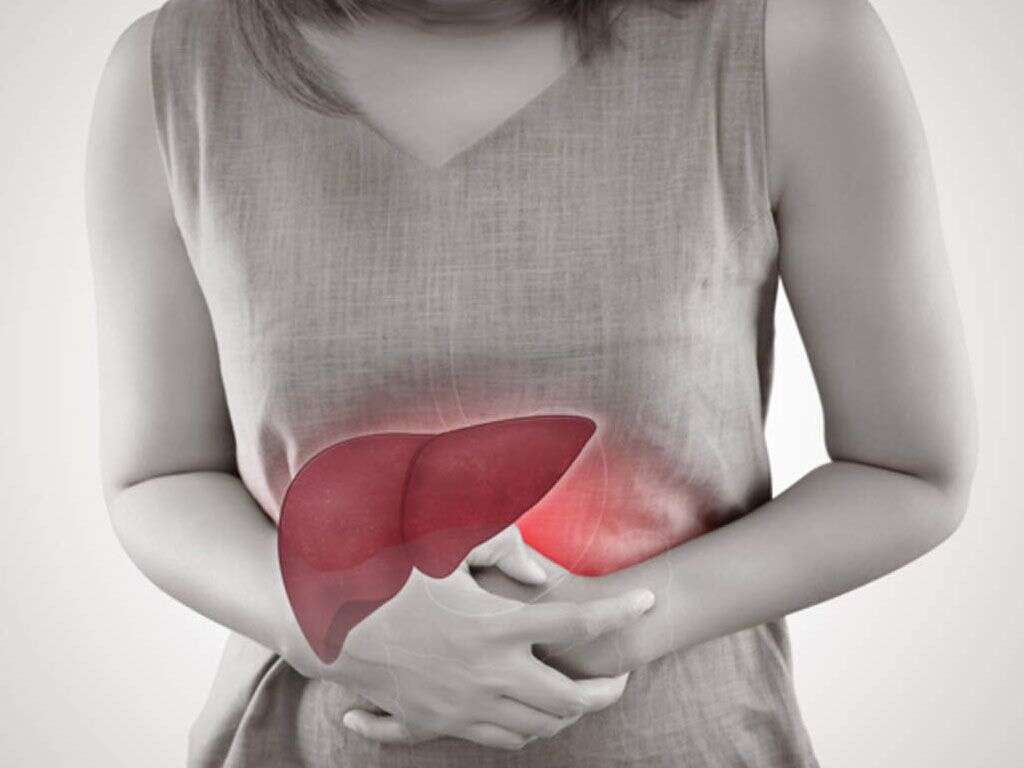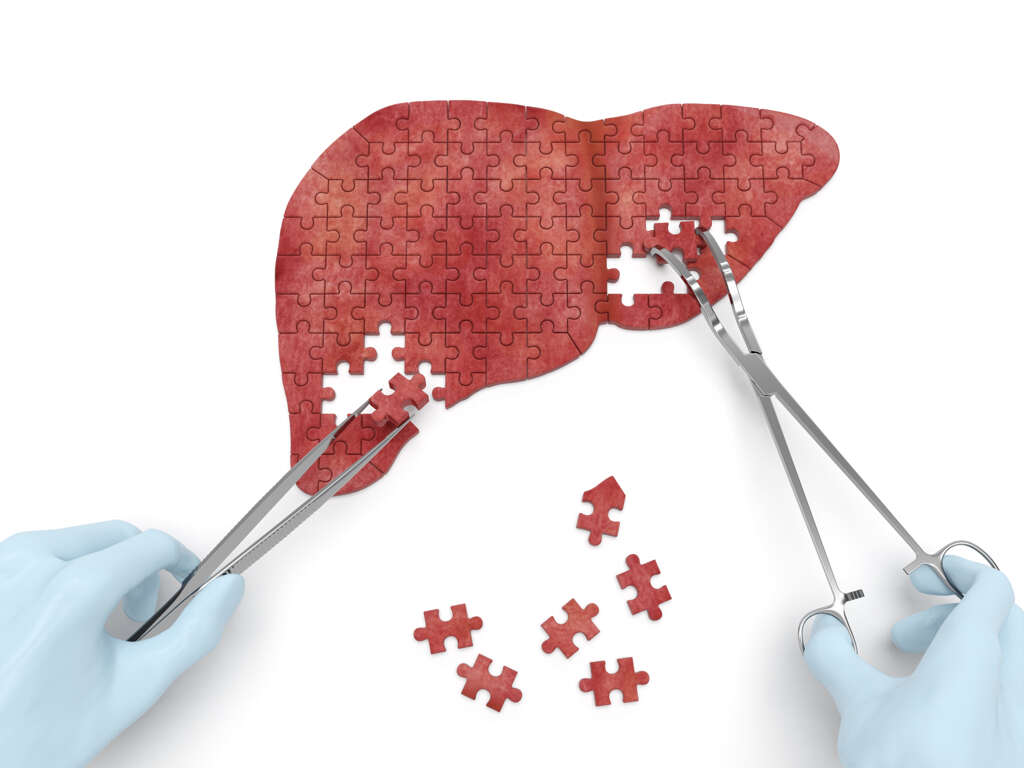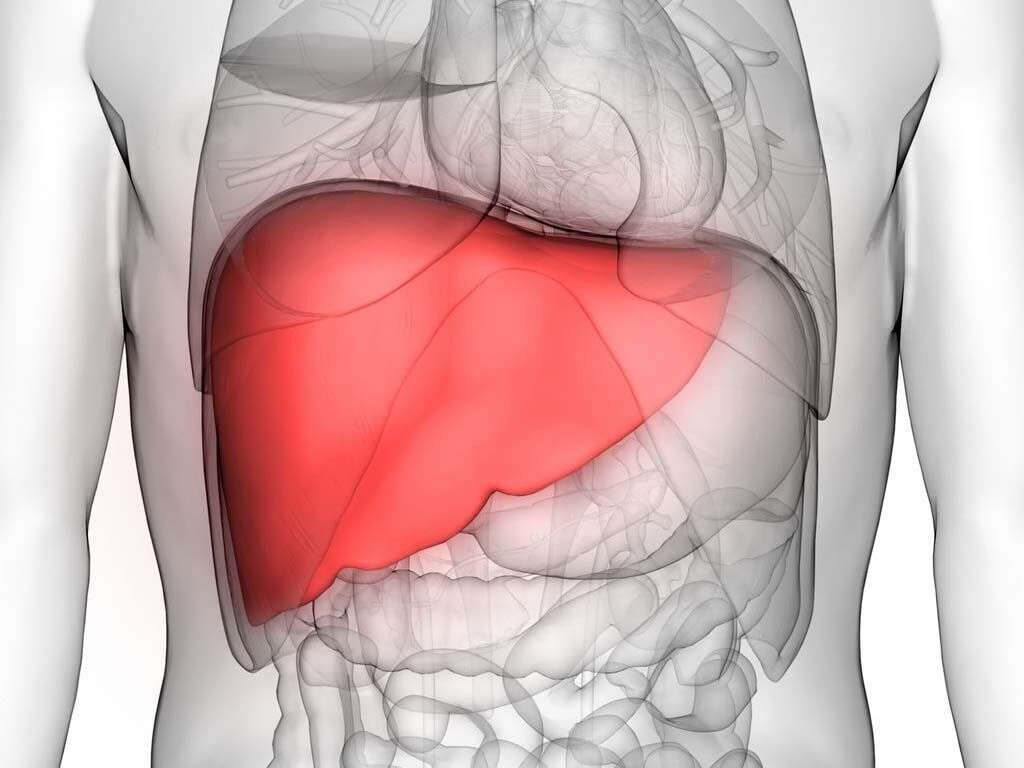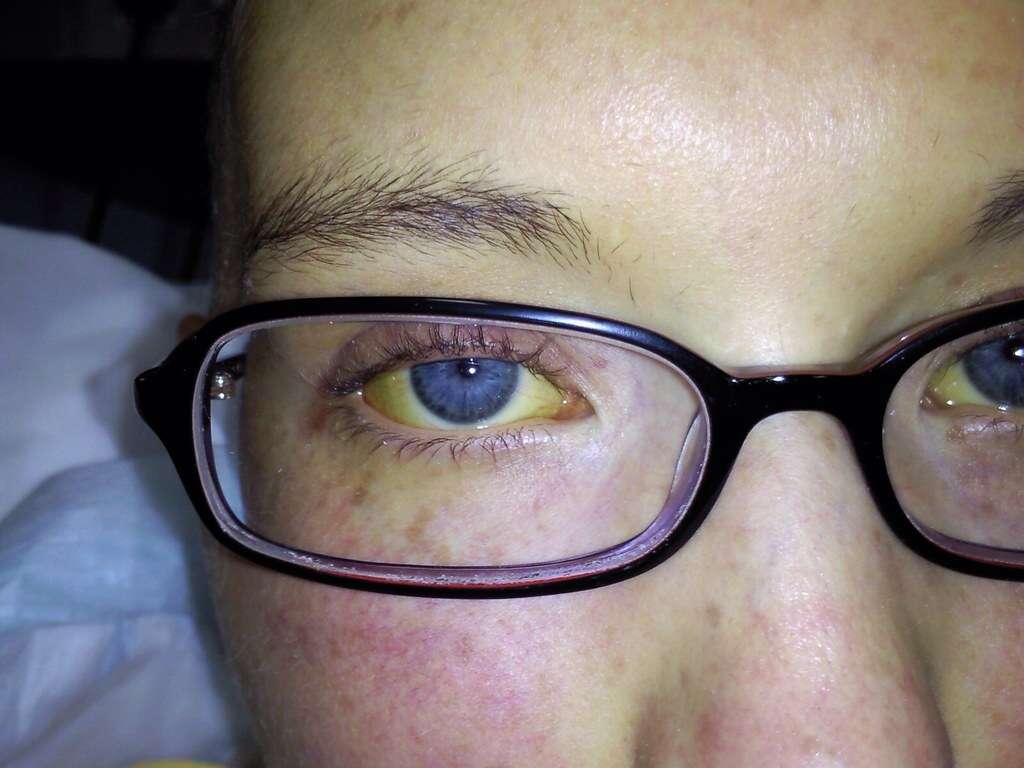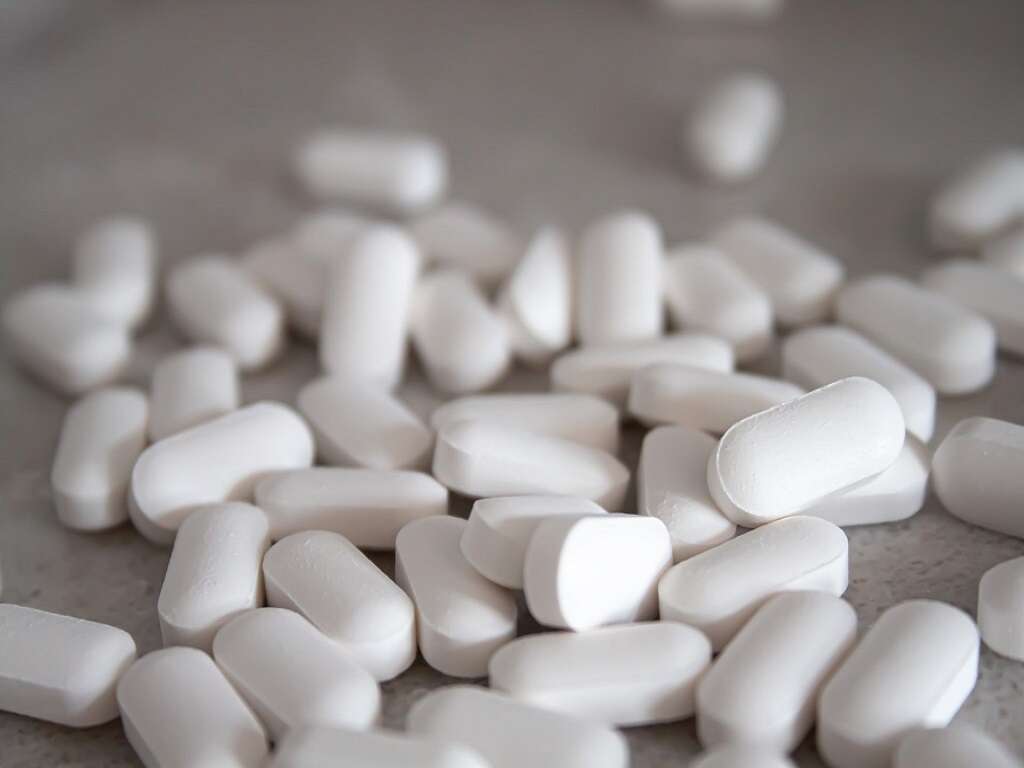10 Enlarged Liver Symptoms
The liver is the largest internal organ in the body and second overall after the skin. In an adult, the liver weighs between 1.4 and 1.6 kilograms. The liver is responsible for more than 500 functions, which include processing various nutrients, building proteins, producing bile, and detoxifying blood.
However, some disorders can lead to an enlarged liver, besides other problems. An enlarged liver, also called hepatomegaly, is not a disease by itself. It is a sign of such underlying conditions as fatty liver disease, liver cancer, and congestive heart failure.
Enlarged liver symptoms can, therefore, indicate that you have a health condition that needs medical attention. Below are 10 enlarged liver symptoms to be aware of.

Symptom #1: Bloating
Abdominal swelling or bloating can be caused by an enlarged liver due to advanced disease conditions. Reduced levels of blood proteins compromise the ability to hold fluids within the blood vessels. Together with increased pressure, fluids can leak into the abdominal cavity resulting in abdominal ascites, which manifests outwardly as a distended belly.
Infringement on the abdominal organs by the enlarged liver can cause a feeling of being full and bloated. As a result, the affected person can lose appetite and present with abdominal discomfort, besides nausea and filling up quickly. Other concurrent disease conditions that deplete protein levels and obesity can worsen the abdominal swelling and bloating. Fluid in the abdominal cavity can be removed surgically or by use of drugs that enhance water loss, also called diuretics.

Symptom #2: Abdominal Pain
Stomach pain is not always caused by bad food. It may be a sign of a diseased liver that may lead to an increase in its size or hepatomegaly. Causes of liver disease include some medications and inflammatory diseases like hepatitis. Moreover, prolonged assault and injury to the liver due to excessive alcohol intake can cause significant enlargement of the organ. When the liver presses against other abdominal organs, you can feel pain on the upper right-hand side of the body.
To establish the specific cause of the enlarged liver symptoms, and hence determine the right treatment, full blood tests and liver tissue tests may be performed. Medication is prescribed in some cases such as viral hepatitis, whereas withdrawal of offending drug or alcohol can reverse or slow the progress of the liver disease.

Symptom #3: Poor Concentration
Due to the central role that the liver plays in detoxification of blood, elevated levels of waste and potential toxins often follow liver failure. Some of these toxins can find their way to the brain, generating what is described as hepatic encephalopathy. This is the perturbation of brain function due to the accumulation of toxic substances.
Manifestations of hepatic encephalopathy include poor levels of concentration, drowsiness, confusion, disorientation, and even behavior changes. Laboratory analysis critical to establishing hepatic encephalopathy includes blood tests to measure ammonia levels. Liver enzyme levels and function tests are also necessary to establish the degree of liver failure. Substances like alcohol that can worsen liver disease due to alcoholic fatty liver disease should be avoided.

Symptom #4: Itchy Skin
When liver functions are deranged such that the liver is unable to synthesize proteins and detoxify blood, substances such as bilirubin accumulate within the bloodstream. This leads to itchiness and easy bruising. Some of the proteins synthesized in the liver are involved in controlling blood clotting. A deficiency in the clotting proteins results in extended bleeding time from even the tiniest cut or bruise.
However, because other blood disorders such as hemophilia also manifest in increased bleeding and difficulty in blood clotting, proper testing should be carried out to determine the cause of these symptoms. While the itching may be generalized, it is usually localized to the hands and legs in cases of chronic inflammation or obstruction of bile ducts that lead to a slow flow of bile.

Symptom #5: Blemishes or Jaundice
A disruption of liver function adversely affects the metabolism of endogenous substances or hormones. For instance, estrogen levels in blood rise in case of liver failure. This prompts the enzyme tyrosinase to produce more melanin, which is responsible for skin pigmentation. As a result, blemishes can be seen in the face or elsewhere in the body in sustained liver failure.
Jaundice or yellowing of the skin and sclera of the eye occurs due to excess bilirubin, a by-product of the breakdown of red blood cells. Jaundice is particularly common among young children due to their underdeveloped liver. For adults, jaundice may indicate severe liver disease and is usually accompanied by other liver disease symptoms. Jaundice may resolve on its own if the causative problem clears. However, if it persists, prompt medical attention is required to avert further damage.

Symptom #6: Redness of the Palms
In addition to the yellowing of the skin described earlier, liver disease can lead to the redness of the palms, whose medical term is palmar erythema. Redness of the palms is usually a consequence of multiple factors, including fatty liver disease, that have progressed to liver cirrhosis.
The cause of the reddening is the disruption of the levels of the androgen hormones as well as chemical mediators of inflammation, and vasodilation or widening of blood vessels. Vasodilation is caused by prostacyclin and nitric oxide. In case of enlarged liver symptoms, you should seek medical, which should be initiated following comprehensive laboratory tests.

Symptom #7: Anorexia
Patients with an enlarged liver often present with anorexia. It is a non-specific symptom associated with many conditions.
In patients with cirrhosis, this symptom may cause dramatic weight loss and medical attention is of paramount importance to prevent further complications.
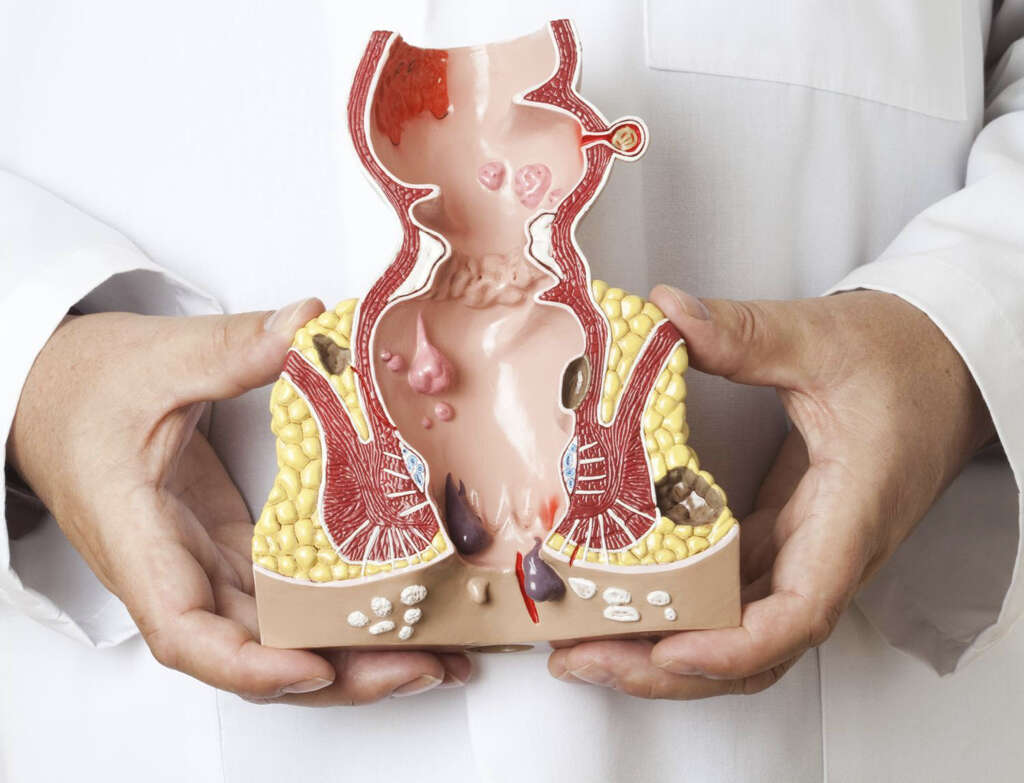
Symptom #8: Changes In Mental Status
Patients suffering from cirrhosis may experience changes in their mental acuity.
As the disease progresses and hepatic encephalopathy sets in, the patient may become lethargic, easily confused, and unable to perform simple tasks. If the condition is left untreated, it can cause somnolence and even coma.

Symptom #9: Muscle Wasting
Patients with an enlarged liver may experience muscle wasting.
Depending on the reason for hepatomegaly, it can cause the muscles to atrophy as they lack the building blocks in order to grow or even maintain their normal shape. This symptom is usually associated with cirrhotic patients.

Symptom #10: Fatigue
Feelings of tiredness and body weakness often accompany liver disease. Glucose storage in the form of glycogen is one of the functions of the liver. As a prime source of the body’s energy for myriad functions, the lack of adequate glucose can cause tiredness and inability to carry out normal activities effectively. Liver disease can also affect production of energy throughout the body.
Fatigue is more apparent for people who engage in energy-intensive activities and those with other accompanying diseases. It may also occur due to the anemia arising from bleeding or the compromised detoxification processes caused by liver disease.




